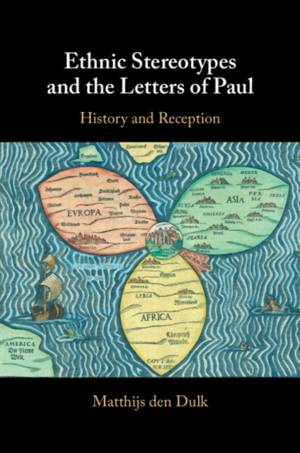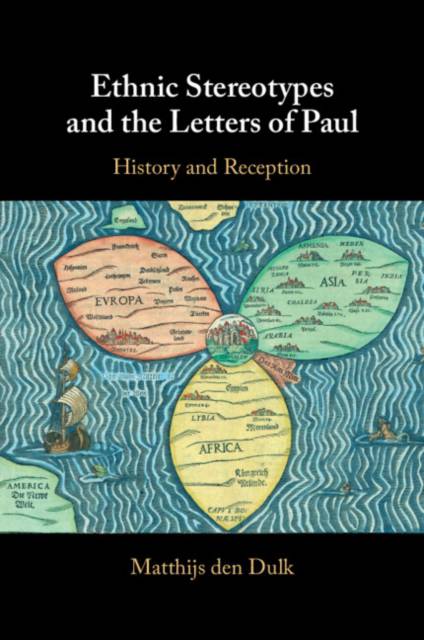
- Afhalen na 1 uur in een winkel met voorraad
- Gratis thuislevering in België vanaf € 30
- Ruim aanbod met 7 miljoen producten
- Afhalen na 1 uur in een winkel met voorraad
- Gratis thuislevering in België vanaf € 30
- Ruim aanbod met 7 miljoen producten
Zoeken
Ethnic Stereotypes and the Letters of Paul
History and Reception
Matthijs Den Dulk
Paperback | Engels
€ 43,45
+ 86 punten
Uitvoering
Omschrijving
Do Paul's letters draw on ethnic stereotypes? Did they influence how ethnic and racial outsiders were viewed in later eras? In this volume, Matthijs den Dulk offers a series of case studies that analyze different ways in which ethnic stereotypes were used or exerted influence on Pauline writings. Informed by recent empirical research on the impact of stereotypes, Den Dulk shows that paying attention to ancient stereotypes about Galatians, Corinthians, Scythians, Cretans and other groups sheds significant new light on the context, composition and content of Paul's letters. Den Dulk's exegetical argument integrates analyses of the history of interpretation, which demonstrate that Paul's letters were used to support modern conceptions of ethnic difference, including racist theories. This study thus raises important and timely questions about the content of Paul's letters as well as their influence on subsequent ideas about race and ethnicity. This title is also available as Open Access on Cambridge Core.
Specificaties
Betrokkenen
- Auteur(s):
- Uitgeverij:
Inhoud
- Aantal bladzijden:
- 272
- Taal:
- Engels
Eigenschappen
- Productcode (EAN):
- 9781009718103
- Verschijningsdatum:
- 12/03/2026
- Uitvoering:
- Paperback
- Formaat:
- Trade paperback (VS)
- Gewicht:
- 25 g

Alleen bij Standaard Boekhandel
+ 86 punten op je klantenkaart van Standaard Boekhandel
Beoordelingen
We publiceren alleen reviews die voldoen aan de voorwaarden voor reviews. Bekijk onze voorwaarden voor reviews.







